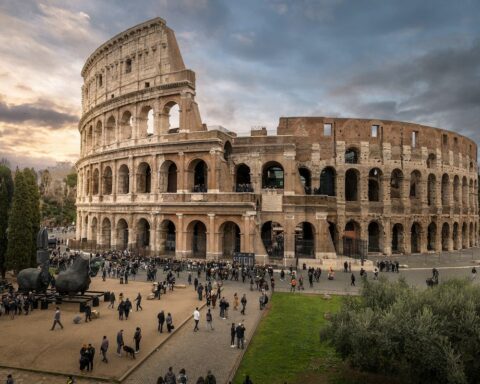ROME (Parliament Politics Magazine) – After Five Star, his populist coalition partner withdrew its backing in a vote of confidence, Italian Prime Minister Mario Draghi announced his resignation.
Since February 2021, a unity government has been led by the former president of the European Central Bank.
He claimed in a statement that the trust pact that had supported the unity administration was no longer in place.
The president, however, was unwilling to accept his resignation.
Former ECB chief Mario Draghi was chosen by President Sergio Mattarella to oversee the post-Covid recovery of Italy and prevent endemic instability.
He has now requested that Mr. Draghi speak before the parliament in order to paint a clear picture of the political situation.
President Mattarella’s intervention may or may not have an impact, but Mr. Draghi is not likely to speak at the parliament before next Wednesday. Italy is currently dealing with a period of political unpredictability that may jeopardise its attempts to address an impending energy crisis and secure fundings from the EU.
The extraordinary events in Rome came to an end after a day of drama caused by Five Star leader Giuseppe Conte’s refusal to support the government’s €23 billion (£19.5 billion) package of economic aid for families and businesses on the grounds that Mr. Draghi wasn’t doing enough to address the cost of living crisis.
Though the government easily won the Senate vote on Thursday with the support of other parties, the prime minister had frequently warned that the government would collapse without support from Five Star.
Known as “Super Mario,” he visited President Mattarella and, after pondering his options, submitted his letter of resignation.
Politically speaking, votes in Parliament today were quite important. There was no longer the national unity majority that had supported that government from its inception, he said. He went back to the Quirinale palace to deliver his resignation to the president one hour after addressing his cabinet.
Elections were previously scheduled for the beginning of 2023, but if Mr. Draghi’s resignation is confirmed, they will probably be held in the autumn instead.
The coalition issue was being attempted to be resolved up until the Senate vote. As anxiety spread among investors in the third-largest economy in the eurozone, Milan’s stock market fell 3.4%.
Former Italian prime minister and current commissioner for the EU’s economy Paolo Gentiloni stated earlier that the EU’s executive was closely monitoring events in Rome with necessary detachment, but with worried astonishment. The leader of Italy’s business association Confindustria characterised Five Star’s decision as very irresponsible.
The largest party in the alliance at one point, Five Star, has witnessed a number of defections and a decline in support. Former party leader Luigi di Maio charged the party with hatching a cunning scheme to topple the Draghi administration in order to boost its own popularity while bringing Italy to a social and economic collapse.
The general election of 2023 has been a target for parties across the political spectrum, particularly on the right. Giorgia Meloni of Brothers of Italy and Matteo Salvini of the far-right League are vying to be the leader of a potential right-wing alliance.
In stating that she was “ready to govern,” Ms. Meloni immediately called for elections, and Mr. Salvini declared that a period of political gridlock was unthinkable.






